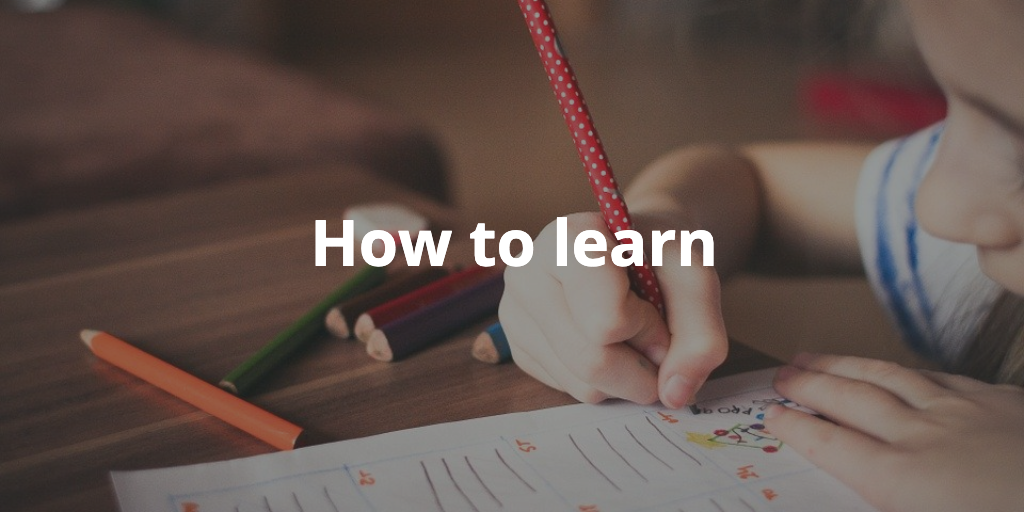Dear Zoe,
These days your mom and I spend a lot of time thinking about all the important life skills we hope to teach you before we send you off to college. Everything from finding a form of exercise you love, to learning how to cook basic meals, to instilling values like hard work, grit, and the importance of frugality. While this list of life skills is already ballooning, we've come to realize the far tougher challenge than listing these skills is figuring out the most effective way to teach them to you.
We've come to believe that there is a 4-rung hierarchy of methods of learning, with each higher rung being a far more effective approach.
The lowest rung of the hierarchy involves explaining the concept to you or teaching the skill. We could sit you down and try to explain the importance of frugality, for example. We might tell you that while living under your means may require delaying instant gratification of purchasing something you want now, it creates a financial freedom that gives you the opportunity to more readily pursue your passions, take intelligent risks, and protect against worst-case scenarios. The majority of our education system has us learn new skills in this exact way. And certainly there are many things we need to be taught in this way to understand them. But when it comes to teaching life's most important skills, too often these lessons fall flat.
The next rung up the ladder involves us proactively modeling the behavior we're hoping for you to learn. The idea here is that rather than trying to instill the concepts through teaching, we instead show you the intended behavior day-in and day-out. Given the incredible amount of time you will spend observing us, you can't help but take away something from our modeling. For example, we can model the frugality we hope to instill in you through the actions we take and you observe on a daily basis. Or we can educate you on living a healthy lifestyle full of exercise by you seeing us hitting the gym or going for a run three times a week, plus us taking you on hikes every weekend. Modeling the behavior is far more effective than just teaching the skill because it's reinforced regularly and the consequences of our actions can more directly be felt.
But we can do even better than simply modeling the behavior. Hasan Minhaj, in a recent podcast episode of Business Dad, talked about how he had the typical immigrant upbringing, with his family moving to America, working hard, and striving to create a better life for Hasan and his sister. That upbringing can't help but shape you. Hasan reflects on this by saying so much of his own perspective was shaped through this very personal experience. And now he thinks a lot about, with his own daughter, how he can create the right experiences to help shape her perspective. But how he needs to do so differently, because given his own success, his daughter's upbringing certainly won't look like his own. And this is what the third rung of the learning ladder is all about. Create opportunities for you to have a personal experience that leaves you with a particular insight, perspective, or life skill. There is nothing better than experiencing something viscerally to ingrain the learning in you. Finding and creating these kinds of opportunities, though, is incredibly difficult and requires far more effort, patience, and creativity on our part to try to impart. I personally remember how Boy Scouts summer camp was a formative personal experience for me in my youth, as it was an opportunity to learn to live away from my parents, appreciate the great outdoors, and to cook, clean, and live amongst peers with limited adult involvement for over a week.
When I've shared this framework with parents that are much farther along on this journey, several have pointed out that there's an ideal age when it's easiest to teach most of these skills, which is at the latter end of their 18 year journey at home. Unfortunately, this latter stage is also accompanied by the new reality that parent's influence over their children wanes and the influence of their friends and peers grows immensely. While we certainly have no ability to dictate who you decide to be friends with, we do have the ability to curate the type of people you have opportunities to be-friend. Deciding what neighborhood we live in, for example. Or encouraging the types of extra-curricular activities you try out. Therefore the final rung of the ladder is learning from one's peers and our task becomes curating the selection of peers where possible.
While during your youth, your mom and I will be using each of the 4-rungs of the learning ladder in an attempt to educate you on life's most important skills, these learning techniques will be most beneficial to you as you continue life's continuous journey of learning. College and subsequent education will re-enforce that first rung of learning through teaching. But I encourage you to find ways to pursue the others on your own. As you look to further develop your own skills, there is no better way to reinforce the skill to yourself than to model it in your own behavior, even when there is no one you are trying to teach other than yourself. Similarly, you'll find that meaningful experiences are one of the most profound ways of building your perspective on the world, so seek out unique experiences for learning. And finally, take the time to curate your friends and peers. We inevitably learn so much from those we surround ourselves with. Don't fall in the trap of friendships of convenience, but instead seek those out that inspire you, push you, and cause you to become a better version of yourself.
Love, Dad
